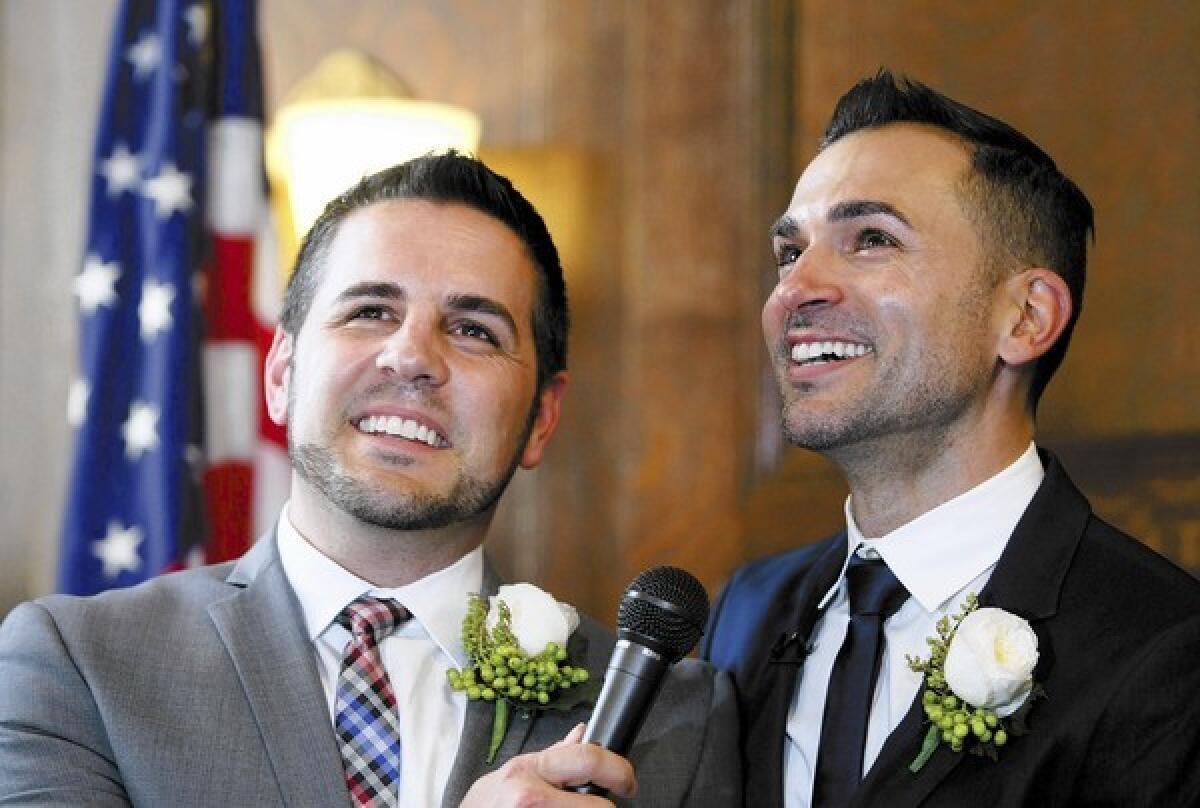2013 Newsmaker: Burbank couple fought civil rights battle that changed the nation

A Burbank couple made national headlines this year after successfully tackling Proposition 8, California’s 2008 ban on same-sex marriage.
Burbank residents Paul Katami and Jeff Zarrillo, along with a lesbian couple from Berkeley, challenged the ban in what amounted to a four-year legal battle, full of emotional testimonies, near-endless court hearings and trips to Washington, D.C.
In June, the U.S. Supreme Court effectively nullified Proposition 8 by sending the case back to California, where a judge in 2010 had overturned the ban.
“I look forward to growing old with the man I love,” Zarrillo said in statements carried live on national television shortly after the ruling. “Today is a great day to be American.”
In the two-week period before the decision, Katami and Zarrillo traveled to D.C. four times — once for just five hours — each time, not knowing if that could be the day the decision would be released.
When the Supreme Court announced its decision, it set into motion a series of cross-country events for the couple, including a phone call from President Obama, celebratory rallies and a rushed drive to Los Angeles City Hall.
That’s where the pair was married — after their six-year engagement — in front of hordes of news media, just more than two hours after a federal court lifted an injunction on gay marriages. The ceremony, which was officiated by outgoing Mayor Antonio Villaraigosa, was even broadcast live on “The Rachel Maddow Show,” with millions tuning in.
Zarrillo’s parents watched from their New Jersey home after popping a bottle of champagne, while Katami’s sister tuned in at a San Francisco restaurant, and strangers watched as far away as Amsterdam, Greece and Spain.
“Until that day, we hadn’t really felt that we were treated like first-class citizens in this country,” Katami said at the time. “Ultimately, what our case showed was that there was zero, not one, instance where there was a legitimate reason to prohibit us from having the same rights as other Americans.”
--
Follow Alene Tchekmedyian on Google+ and on Twitter: @atchek.
ALSO:
Video: Man arrested for allegedly spray-painting swastikas on vehicles, homes
Parole operation nets 10 arrests
Toxicology report: Alcohol, drugs factors in crash that killed five